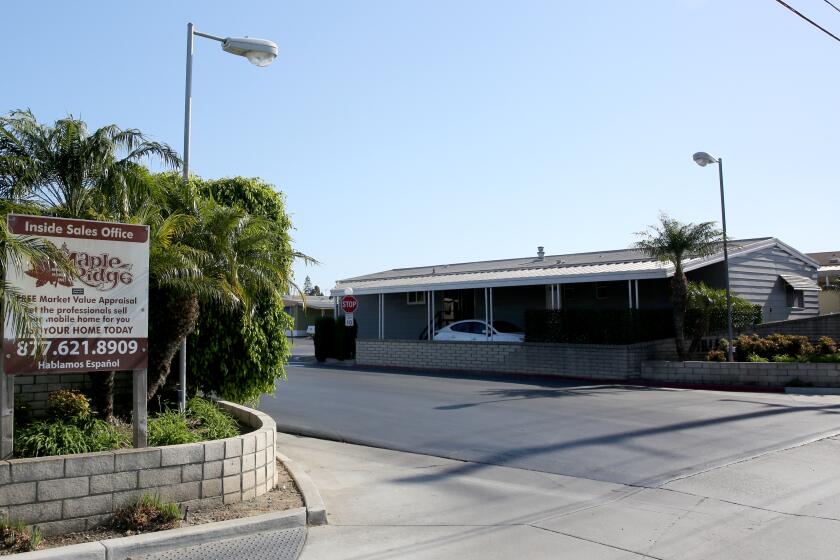Death makes no appointments
- Share via
SOUL FOOD
In the days before Mother’s Day, as I wrote about the sadness the day
can stir up for many whose mothers have died, there was no way I
could have known that death was going to snatch two mothers from the
lives of women I know before the day was past.
Early in the morning, on the day before Mother’s Day, I got an
e-mail from a woman I know named Patty. In the subject line were
these three words: a heavy heart.
Her message began, “I received a knee-buckling call yesterday
telling me that Janie, who I just worked with the night before, had
died in her sleep.”
Janie, Patty explained, was the founder and president of their
church’s St. Vincent de Paul Society. She had a wealth of knowledge
but, more than that, she had a heart of gold. When the coffers went
empty, Janie reached into her own purse to help those she knew were
in need.
“She gave and gave and gave,” Patty wrote. “What a reminder -- a
smack upside the head -- to do good today. To love today. To laugh
today.”
That afternoon, I got another e-mail from a friend of mine named
Jeanni. As I read it, I could hear her Southern drawl. Her words
sounded tired and sad.
“I wanted to let y’all know that my mommy unexpectedly passed away
this morning,” was all she wrote.
Death doesn’t make appointments. It comes like an intruder, a
thief. It has a knack for showing up too early, the way it showed up
for the wife of a man my husband worked with a few years ago.
He went home early one afternoon because his wife, who was home
alone with their two young children, wasn’t feeling very well.
He took the children and went for a walk so she could lie down to
take a nap. He left her resting on the couch; when he returned, she
was dead.
Both Jeanni and Patty got heartfelt condolences from those who
received their news, most especially Jeanni on Mother’s Day.
To Patty, one friend wrote, “What a sad Mother’s Day for those
children. I hope they can take great comfort in the fact that their
mom lived as we all should, to make this world somewhat better as we
go along.”
It is a world of comfort when we lose a loved one to know that
they touched people’s lives, in good ways, and so made this world
better, too.
But what we often want far more is to know that they are, beyond
the grave, safe and happy and alive, in a far better place than this.
A place, perhaps, like John described in the Bible like this:
“[God] will live with them and ... he will wipe away all tears
from their eyes. There will be no more death, no more grief or crying
or pain.” Rev. 21:4
We’d like to think when death comes for us we, too, will journey
there.
I remember a conversation I had with my niece Kellen when she was
about 4. While I tucked her into bed one night, she asked me if I
believed in God and I told her that I did.
Then she asked me if I believed in Jesus and if I believed in
heaven. I could have just told her I did, I guess, but instead I
asked her about why she was asking me that.
So she told me about one morning at breakfast, when she’d asked
her mother, “What happens to people when they die?”
People are buried in the ground and over time, Kellen said her
mother told her, they pretty much become like fertilizer that helps
the plants and the trees and the flowers grow.
Kellen’s brow was furrowed, her eyes intent. She bit her lower
lip. “I don’t want to do that,” she said then paused. “I want to live
somewhere. Can’t I choose?”
Yes, you can,” I told her. “Everyone can.” And I told her a story
that Jesus told about a place many of us call heaven.
“There are many rooms in my Father’s house, and I am going to
prepare a place for you. I would not tell you this if it were not
so,” he said. John 14:2.
Our rooms are ready. All that’s left for us to do, I told my
niece, is to follow Jesus there.
* MICHELE MARR is a freelance writer from Huntington Beach. She
can be reached at [email protected].
All the latest on Orange County from Orange County.
Get our free TimesOC newsletter.
You may occasionally receive promotional content from the Daily Pilot.



